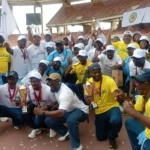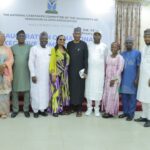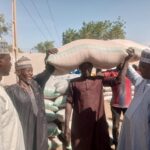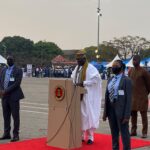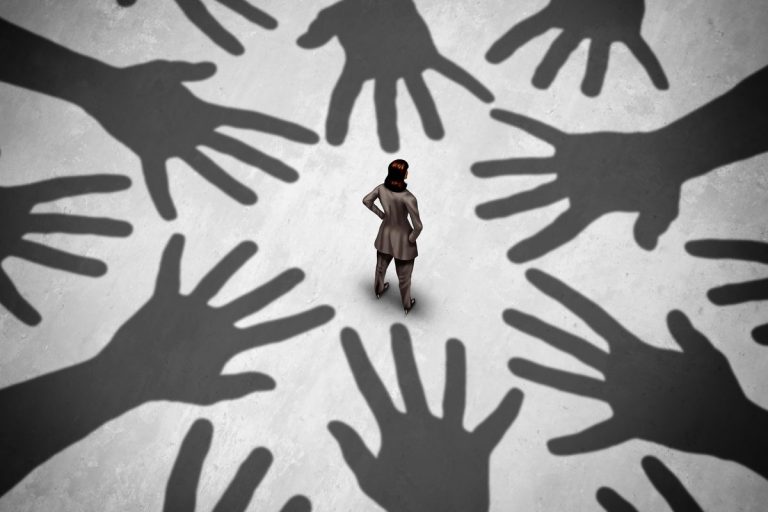By Patricia Amogu
Political status shapes both the process and outcome of sexual misconduct cases anywhere in the world
While sexual violence is a widespread issue affecting many sectors of society, a particularly troubling dimension lies in the involvement of the elite — those in positions of power and influence who have allegedly used their authority to perpetrate or shield themselves from the consequences of such abuse.
While some systems hold elites to account, others reveal persistent gaps – especially where procedural protections become barriers to justice.
Former President of Nicaragua, Daniel Ortega, was accused by his stepdaughter of prolonged sexual abuse, but he attempted to claim parliamentary immunity.
He publicly denied the allegations, and legal immunity was asserted. So, no criminal trial proceeded.
However, in December 2010, former Israeli President Moshe Katsav was convicted on charges of rape, sexual abuse, and obstruction of justice.
He was sentenced to seven years in prison and served five.
In 1998, Canaan Banana, the former president of Zimbabwe, was convicted of sodomy and indecent assault and served a prison sentence.
The list of many such cases goes on and on, including in Nigeria.
During these regimes, political leaders and military officers enjoyed near-absolute immunity from prosecution. Women, especially those in vulnerable positions (household workers, political aides, or journalists), were often subject to sexual coercion with little recourse for justice. These dynamics continued well into the democratic era that began in 1999.
Analysts have pointed out that in Nigeria, just as in other climes, the law against sexual abuse, encompassing rape and other forms of sexual violence, applies to everyone regardless of their position or status.
They say that while certain individuals like those in the military or with diplomatic immunity might have limited legal protections, they are still subject to the law in cases of sexual abuse.
According to them, the law’s application is not based on social status, but rather on the act of sexual violence itself.
The laws against sexual abuse, such as the Violence Against Persons (Prohibition) Act (VAPP Act) (2015) and the Criminal Code, apply to all individuals in Nigeria, including those in positions of power or authority.
Over the years, several high-profile cases have sparked national outrage, but many never made it to court or were dismissed due to “lack of evidence,” political interference, or victim intimidation. Some examples include:
In 2019, a video surfaced showing a senator physically assaulting a woman in a sex toy shop in Abuja. Although initially convicted in a civil suit and fined, the criminal case was controversially dismissed.
His political career continued, and he faced no long-term consequences, illustrating the impunity often enjoyed by political elites.
Similarly, a senator in Nigeria’s Eighth Senate has faced multiple allegations of misconduct and abuse from various women, including those he dated or had professional dealings with.
Although he denied the allegations and no formal charges were brought, the stories have fueled broader conversations about entitlement, abuse, and misogyny within the political class.
The case of Senator Natasha Akpoti-Uduaghan’s allegations against Senate President Godswill Akpabio is another matter begging for a re-evaluation of how complaints by female victims of sexual abuse should be handled.
March 21, 2025, one Ms. Felicia Ogbonna, a 21-year-old Nigerian, demanded government intervention and justice over an alleged serial sexual assault committed against her by a Lagos businessman (names withheld).
Speaking at a news conference, at a news conference organised by her lawyer, Mr Martin Agba, in Abuja on Friday, Ogbonna alleged that the suspect had repeatedly raped her, even with the knowledge of his wife.
Then, most recently is a new and explosive case that reveals the terrifying extent to which power can be used by the elite class to silence, shame, and destroy a woman who dares to speak the truth.
The case involves one Hadiza Musa Baffa, and the man she accuses is no less than a Senior Advocate of Nigeria and former minister who served under President Goodluck Jonathan.
Hadiza has alleged that the man not only abused her sexually, but also violated, manipulated, and trafficked her into sexual servitude. The list of such cases is endless, with many of them unreported due to fear of stigma.
While many such allegations remain unsubstantiated or anonymous due to fear of retaliation, numerous stories exist of female staffers being harassed or assaulted by state governors, top civil servants, or former military generals who transitioned into politics.
Meanwhile, Civil society organisations (CSOs) across Nigeria and Africa have been vocal in condemning sexual abuse and violence perpetrated by the elite, calling for urgent reforms and accountability.
Their statements highlight systemic issues, demand institutional changes, and emphasise the need for a cultural shift to ensure justice and equality.
For instance, Actionaid Nigeria has strongly condemned recent allegations of sexual harassment within the National Assembly and has demanded a thorough, independent, and transparent investigation into allegations of sexual abuse and violence, as well as elite impunity in order to uphold human rights and public trust.
Speaking in Abuja, ActionAid Nigeria’s Country Director, Andrew Mamedu, stated, “For fairness and to maintain public trust in the process, the Code of Conduct Bureau and the National Human Rights Commission (NHRC) must work alongside the National Assembly’s Ethics Committee to conduct a full-scale investigation that meets international human rights standards.
“This investigation must determine the veracity of both past and recent allegations and ensure accountability for any wrongdoing.
“At the same time, if the accusations are found to be false or politically motivated, this must also be taken seriously, as false claims undermine genuine cases of harassment and the fight for justice.”
Mamedu called for the reinforcement of the protection for whistleblowers in cases of sexual abuse and intimidation.
‘‘Additionally, protection for whistleblowers and those who come forward with allegations must be reinforced to prevent intimidation or retaliation, including possible online bullying,” he said.
Similarly, Solidarity for African Women’s Rights (SOAWR), a coalition of more than 80 Civil Society Organisations (CSOs) across 33 African countries, advocating for the implementation of the Maputo Protocol, has emphasised the importance of holding political elites accountable for sexual violence and urges African governments to strengthen legal frameworks to protect women.
Also, Human Rights Watch has reported on the challenges faced by survivors of sexual violence in accessing justice, particularly when perpetrators are in positions of power.
They call for reforms to ensure that justice systems are accessible and responsive to the needs of survivors, regardless of the perpetrator’s status.
To bring an end to such elite impunity, or at least reduce it to the barest minimum, analysts have recommended the establishment of independent and autonomous bodies to investigate such cases of sexual abuse involving the elite.
They also called for the strict implementation of laws such as the Violence Against Persons (Prohibition) Act and the Child Rights Act, as well as the creation of safeguards and enforcement of policies within political institutions to prevent sexual harassment and abuse.
They also believe that strategic awareness campaigns should be conducted to educate the public about women’s rights and the importance of holding perpetrators accountable.
According to them, legal and psychological support should be provided for survivors of sexual violence. (NANFeatures)(www.nannews.ng)
***If published please credit the writer and the News Agency of Nigeria.

